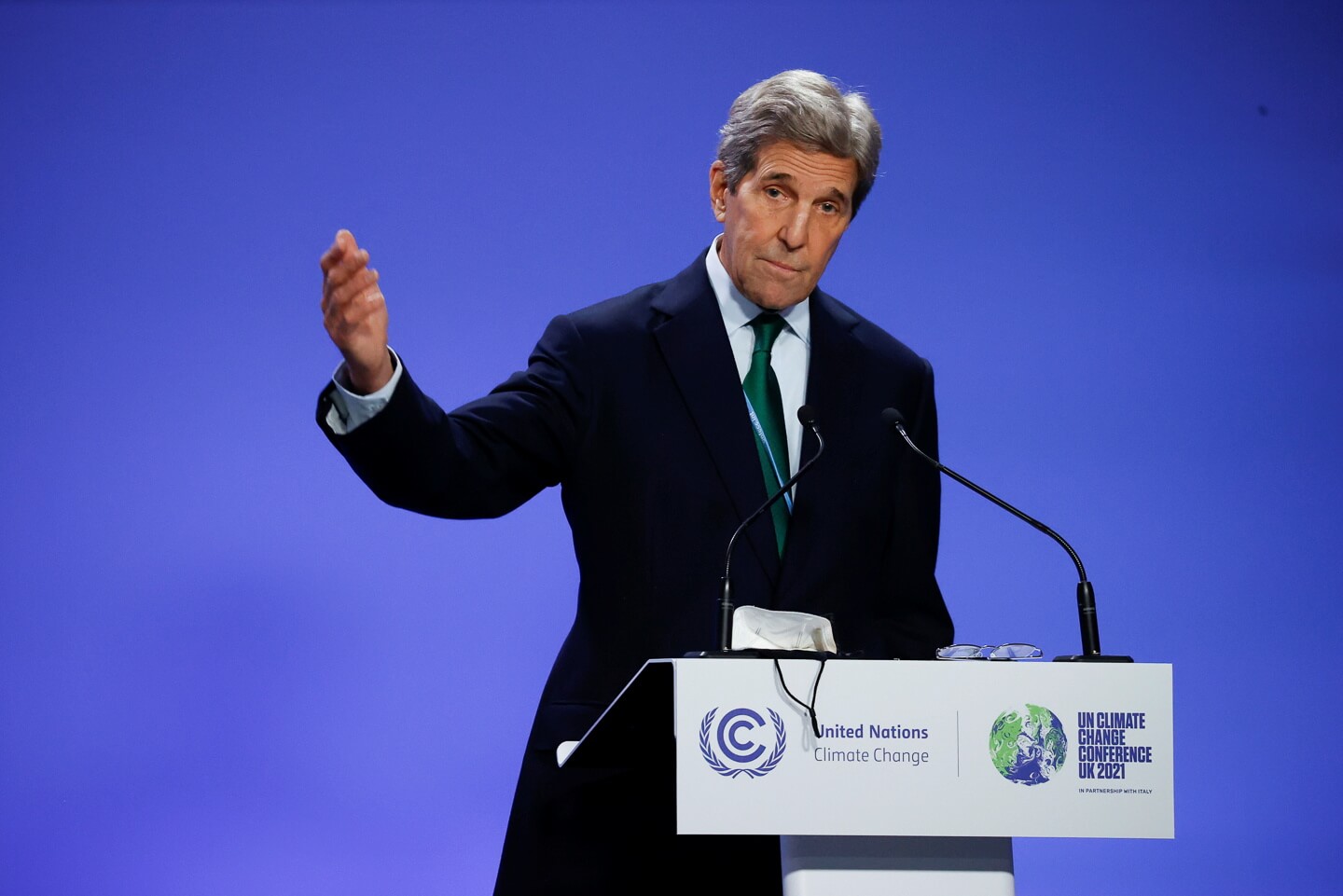On Wednesday, the United States (US) and China announced a joint climate agreement at the United Nations (UN) COP26 summit in Glasgow.
The surprise ‘Joint Glasgow Declaration’ highlighted individual and collaborative commitments both countries will undertake to curb emissions and tackle the climate crisis this decade.
In a joint statement, the respective special climate envoys of the US and China, John Kerry and Xie Zhenhua, said the two largest greenhouse emitters “recognise the seriousness and urgency of the climate crisis.”
The pair announced initiatives that “enhance climate actions and raise ambition,” with accelerated efforts to cut down methane emissions. They also affirmed their commitment to limiting “global average temperature increase to well below 2 degrees Celsius and to pursue efforts to limit it to 1.5 degrees Celsius” to meet the goals set in the 2015 Paris Agreement.
China agreed to “phase down coal consumption during the 15th Five Year Plan and make best efforts to accelerate this work,” while also making commitments to develop a national plan on methane for the first time.
At a press conference after the declaration, Xie remarked, “As two major powers in the world, China and the United States, we need to take our due responsibility and work together and work with others in the spirit of cooperation to address climate change.” Kerry responded by saying: “Now the two largest economies in the world have agreed to raise climate ambition in this decisive decade.”
UN Secretary-General António Guterres hailed the collaboration in a tweet, writing: “I welcome today’s agreement between China and the USA to work together to take more ambitious #ClimateAction in this decade.” Likewise, Laurence Tubiana, the CEO of the European Climate Foundation and France’s former climate change ambassador, said that the agreement demonstrates that the two adversaries “can cooperate to address the climate crisis.”
However, others have opined that the new agreement is not as monumental as the 2014 pact between the two nations that eventually galvanised the Paris climate talks.
Thom Woodroofe, a former climate diplomat and a fellow at the Asia Society Policy Institute, pointed out that the new pact is not necessarily a “game-changer” as compared to the 2014 U.S.-China climate deal, but is nonetheless “a step forward given the geopolitical state of the relationship.” Similarly, Manish Bapna, the president of the Natural Resources Defence Council, a Washington-based environmental group deemed the agreement as to be “good news” but also underlined the urgency to deliver on those goals.
The US and China together contribute 40% of the world's annual carbon output. making the ‘Glasgow Declaration’ a vital commitment in the fight against the climate crisis. Relations between the Washington and Beijing have continued to fray over the course of the past few years over trade and security disputes.
The pact also comes after the US declared China a continuing national security threat just earlier this week. Furthermore, at last month’s G20 summit in Rome, US President Joe Biden called out China for “not showing up in terms of any commitments to deal with climate change.” The agreement reached this week thus builds on Biden’s previous remarks that the two rivals can find areas of mutually beneficial convergence despite their differences. In this respect, Biden and his Chinese counterpart Xi Jinping are set to meet in a virtual summit on Monday as a prelude to their in-person meeting later this year.
US, China Announce Surprise Climate Agreement At COP26
The agreement reached this week thus builds on Biden’s previous remarks that the two rivals can find areas of convergence despite their differences.
November 12, 2021

United States Special Presidential Envoy for Climate John Kerry IMAGE SOURCE: REUTERS
